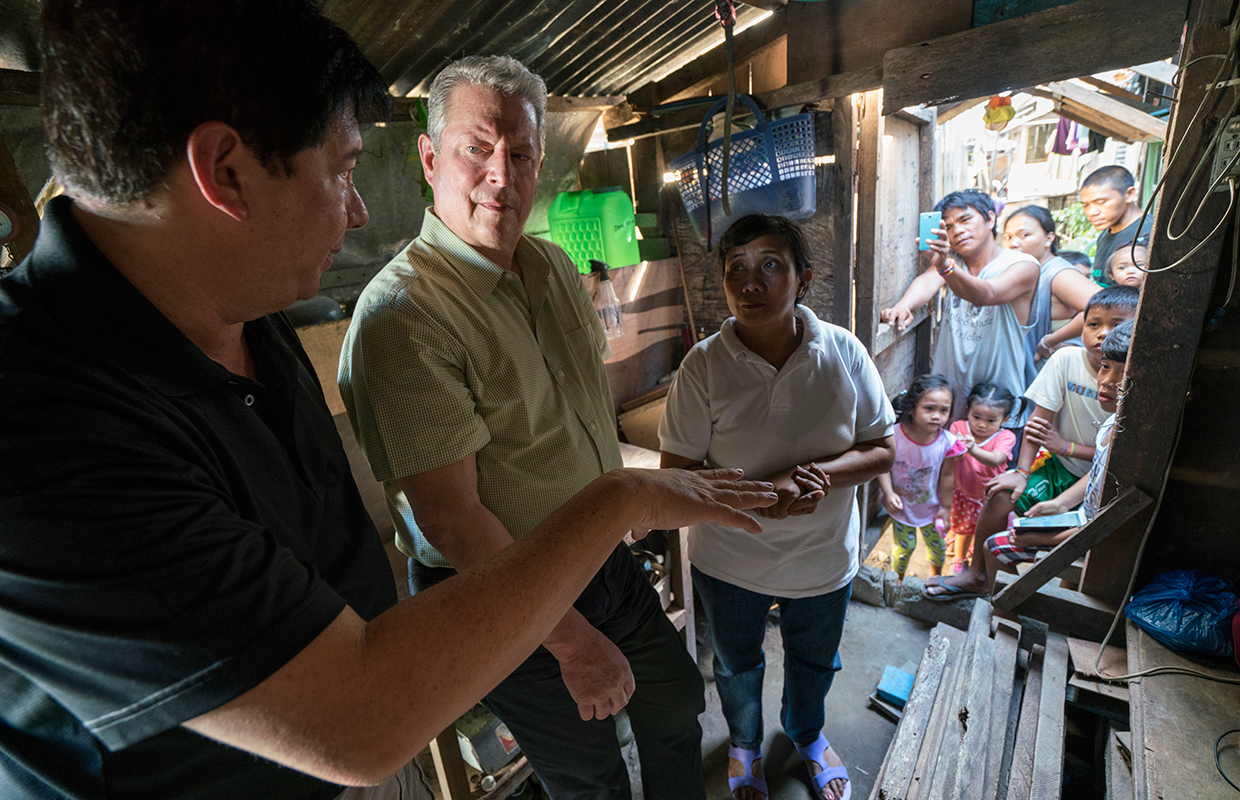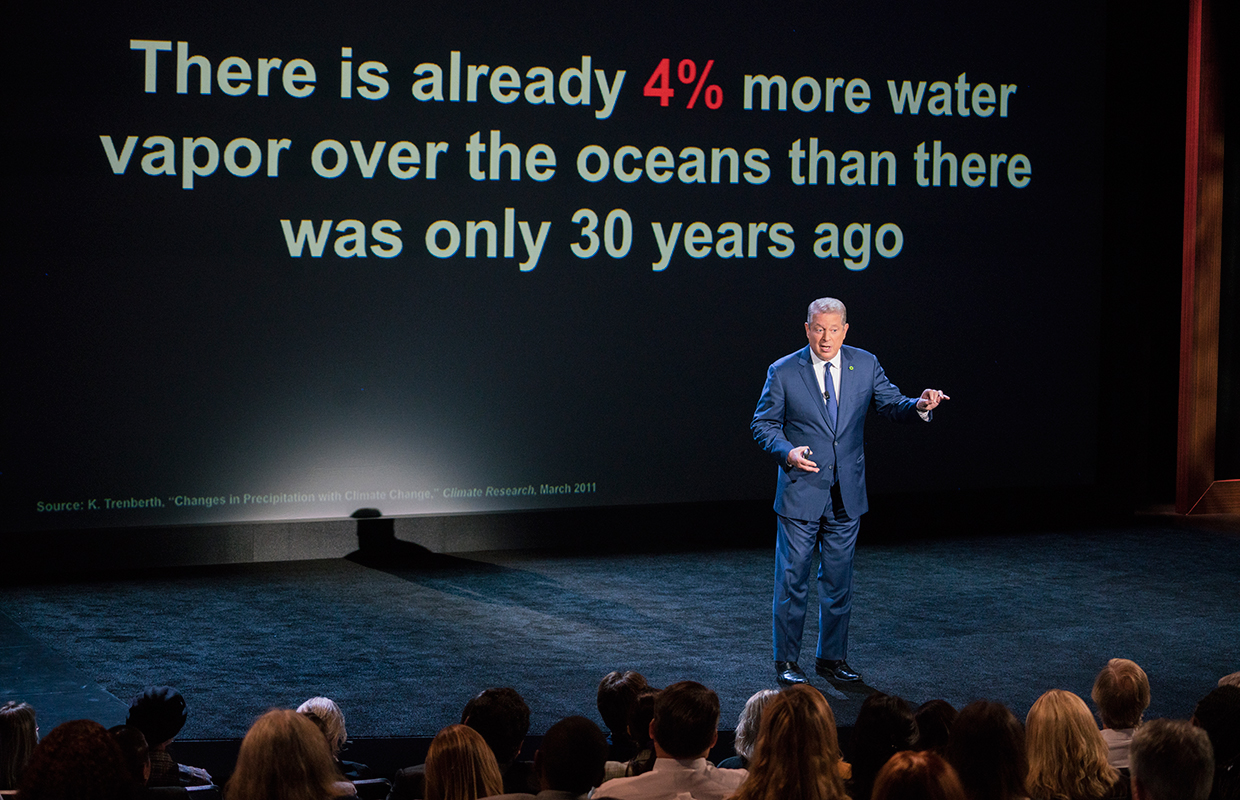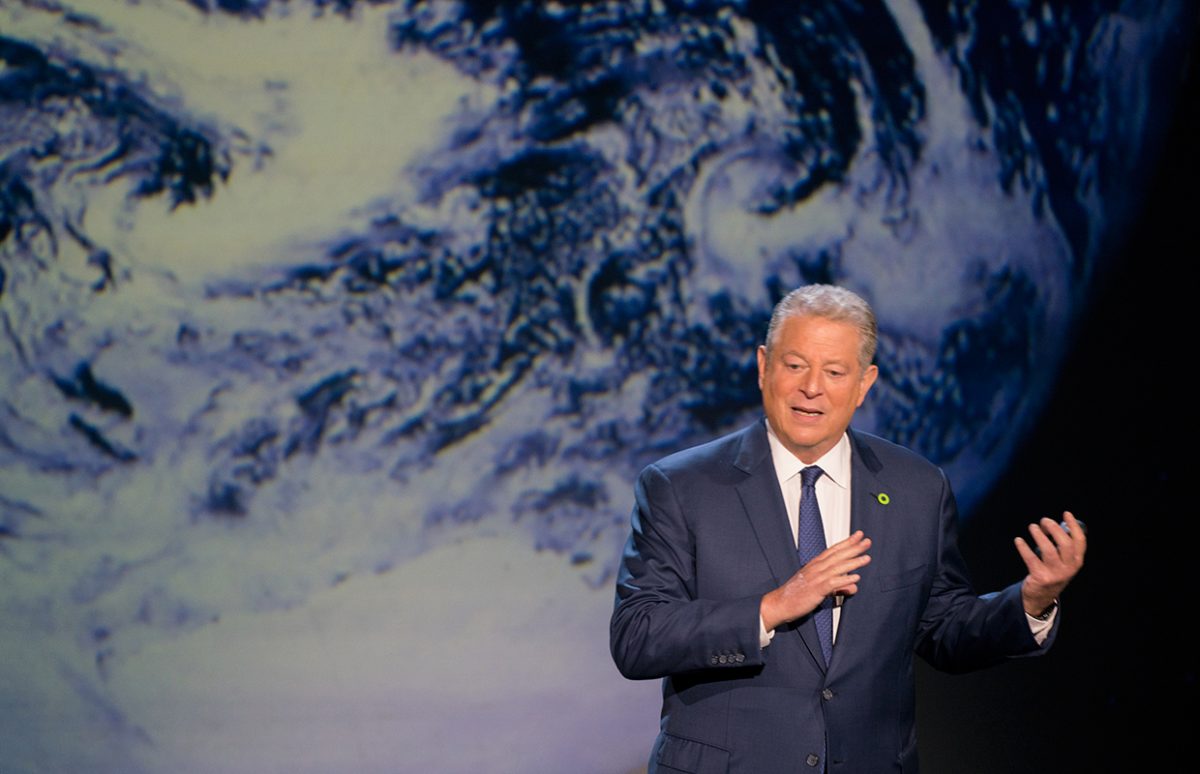In 2006, the documentary The Inconvenient Truth made Al Gore into the most prominent ecologist on the planet. Gore won a Nobel Prize for its impact on public opinion about climate change. Ten years on, An Inconvenient Sequel shows the positive changes that have been made, and Gore's tireless work in continuing to promote solutions to global warming.
Al Gore had been seriously concerned about the environment long before becoming Vice-President in 1993 and then the first presidential candidate in more than a century to win the popular vote but lose the electoral college in 200. In 1989, the then Senator started giving public talks based on a slide show presentation. That gave birth to a book, The Earth in Balance, which became a bestseller.
An Inconvenient Truth was basically Gore's slideshow in film form. By 2006, he had delivered his talk more than a thousand times, constantly updating it to reflect the most current scientific data. Gore admits he wasn't convinced the film would work.
But it did, and it gave Gore a platform. He started annual training sessions on his Tennessee farm to create a Climate Reality Leaders Corps of people from all around the world who can give the talk and spread the word. The Corps is now more than 12,000 strong. It's the opposite of easy "clicktivism". It's not making a fancy website or launching an online petition. It's real people going to talk to other people, convincing them one at a time.
If An Inconvenient Truth was a cry of alarm, An Inconvenient Sequel is more of a pep talk. Yes, says Gore, we still have a major problem, but look at what all you amazing people have been doing about it. Keep up the good work, there's still lots to do.
In some ways the situation is worse than in 2006. Many of the Gore's predictions in AIT have come true. An Inconvenient Sequel follows Gore as he visits communities ruined by rising seas and other climatic disasters. But also as he meets people finding creative solutions to the issues.

The centre piece for the film as it screened at the Cannes Film Festival in May was the historic climate agreement reached at the Paris Climate Summit in 2015. The "fly-on-the-wall" style filming cranks up the tension as Gore prepares to help negotiate the agreement.
Particularly difficult was persuading newly industrialised developing countries such as India that they need to, in their eyes, sacrifice the advantages the older industrialised nations had had. As Piyush Goyal, India’s Minister of Energy and Power, says to Gore about investing in solar energy: “I’ll do the same thing after 150 years. After I’ve used my coal. After I’ve got my people jobs. After I’ve created my infrastructure …”
Yet Gore remains convinced that the tide has turned in what he dubs "the Sustainability Revolution" precisely because it is becoming more economically viable to produce clean energy than carbon-based energy. And countries like India, which don't have a fully developed carbon-based energy system, are ripe to leap straight into the clean energy era. 65% of India's electricity currently comes from coal. However, a fifth of the population still has no access to household electricity at all. Neighbouring Bangladesh is one of the fastest growing solar markets in the world. Millions of Bangladeshis who never had a connection to the nation’s limited power grid are now connected by solar.
At the Paris Summit, Gore managed to persuade India to sign the agreement after brokering help developing their solar energy supply. A happy result. Symbolically, the agreement was signed on Earth Day 2016.
The Fight Goes On
However, since the film's first screenings, Gore has been deeply disappointed that President Trump has carried through on a campaign promise to pull out of the agreement. The film had to be recut to reflect this new development. As usual, though, Gore's irrepressible optimism kicks in. Back on pep-talk mode, he compares the sustainability movement to other social movements that slowly but surely reached a tipping point towards change – the abolition of slavery, civil rights, women's suffrage. And Gore will accompany the Sustainability Revolution every step of the way. Not in a showy way. Quiet but determined. Like the pledge he and the filmmakers urge viewers to sign: "Be Inconvenient"!

Copyright(s) :
Jensen Walker © 2017 Paramount Pictures. All Rights Reserved
> Ecology on the Web
> Videos of a Teenage Eco-Warrior
> Climate Change Webpicks






